1.What is FORUS System
In 2021, Sinochem Holdings Corporation Ltd. (“Sinochem Holdings") launched and implemented the HSE Forerunner vision and the FORUS system, with the goal of “zero Loss" and the vision of “global HSE forerunner", with the commitment to promote health, safety, environmental protection, and sustainability within Sinochem Holdings. The FORUS system takes HSE risk management as its core, implements comprehensive loss control, and makes systematic arrangements for the entire life cycle of business activities such as projects, equipment, processes, and products, covering safety, environmental protection, health, energy, carbon emissions, security, etc. It unifies the HSE management language and evaluation standards, provides fundamental compliance for HSE management, and a systematic solution for achieving the HSE forerunner vision. (More details of the FORUS System can be found on the website of Sinochem Holdings)
As the offshore financing and asset holding company of Sinochem Holdings, Sinochem Hong Kong (Group) Co., Ltd. (“Sinochem HK” or “the Company”) runs through the HSE Forerunner vision and the FORUS system in its operations. Sinochem HK strictly abides by and fully implements the FORUS system, establishes a safety and health management system for all employees and contractors, implements the health, safety and environmental protection responsibilities in accordance with the Sinochem HK HSE Responsibility Policy, and creates a safe, healthy and comfortable workplace for employees and stakeholders.
FORUS stands for "for us", which means to ensure healthy and safe work conditions for employees, to provide customers with green and safe products and services, to bring benefits to shareholders, to create greater value for the society, and to achieve sustainable business development. FORUS also refers to the Fore Runner, aiming at promoting the continuous progress of HSE management and to create a harmonious and coexistent world.
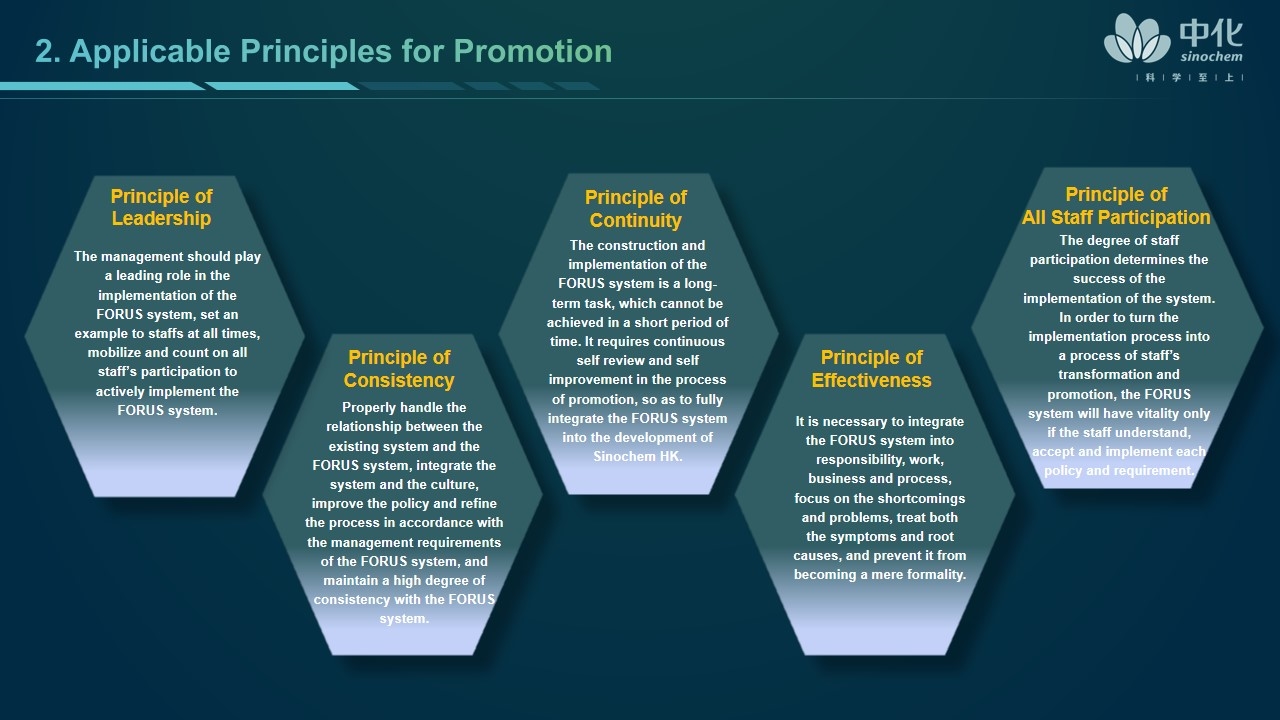
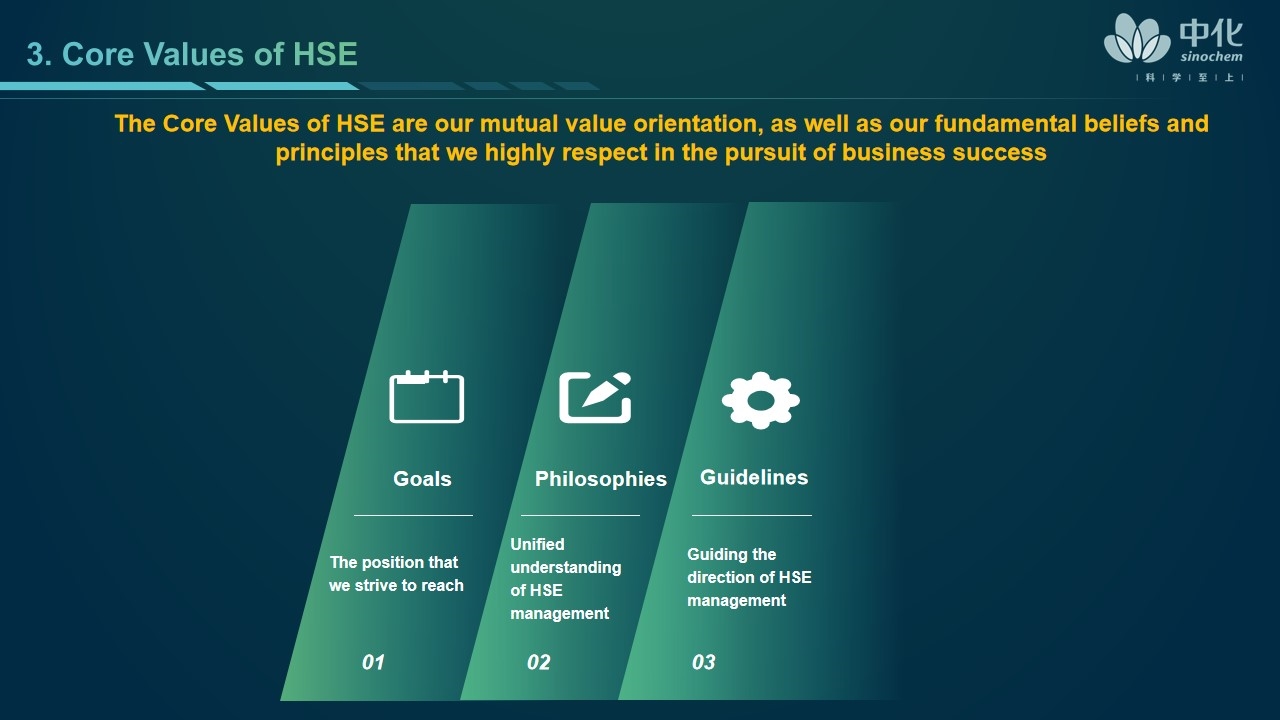
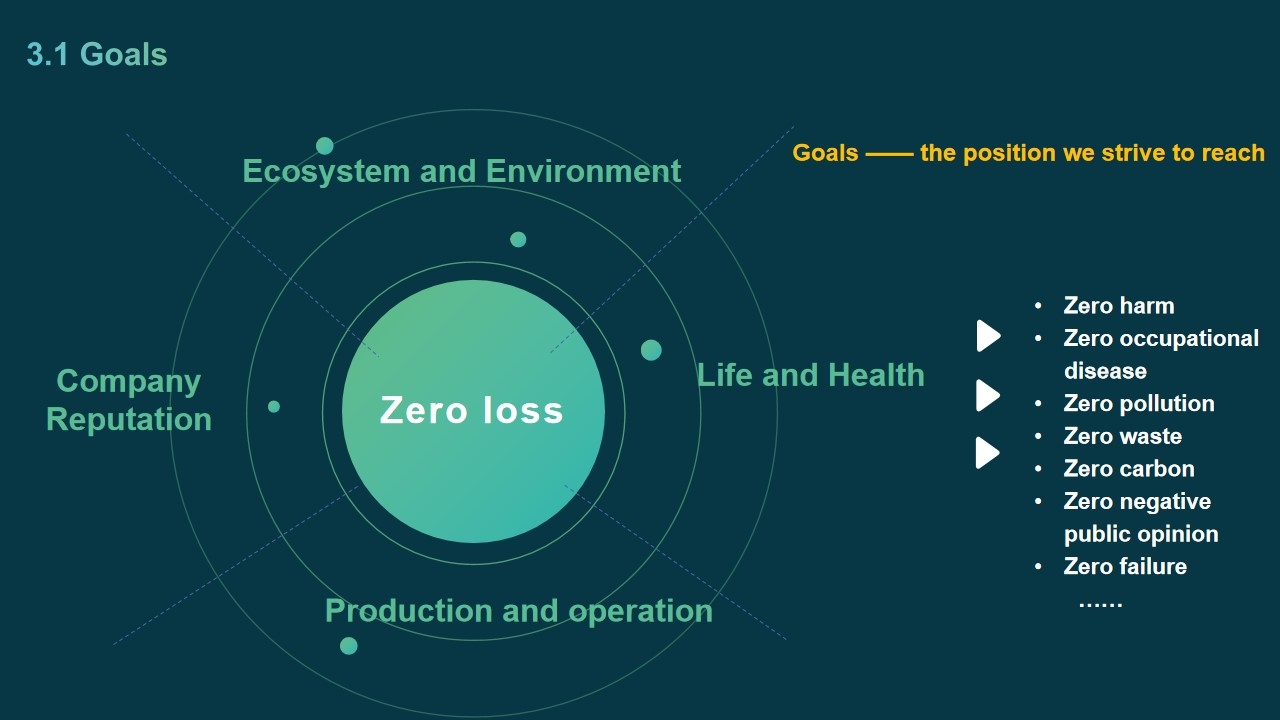
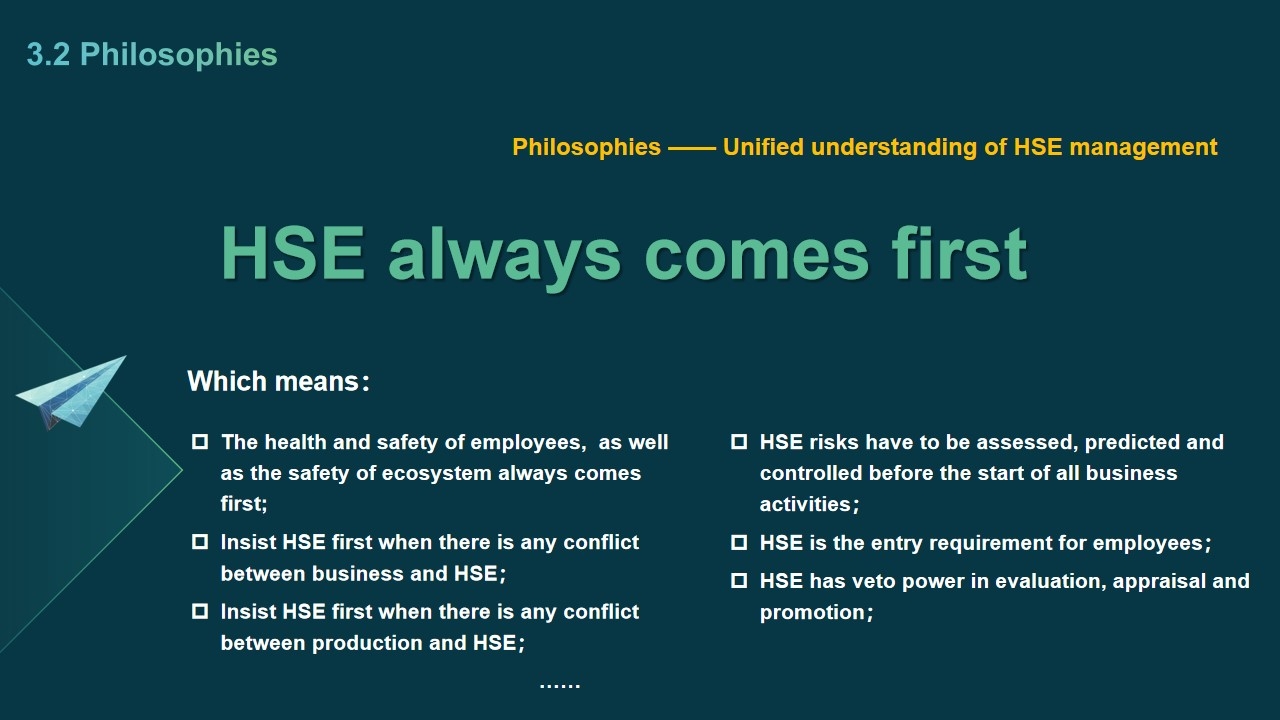

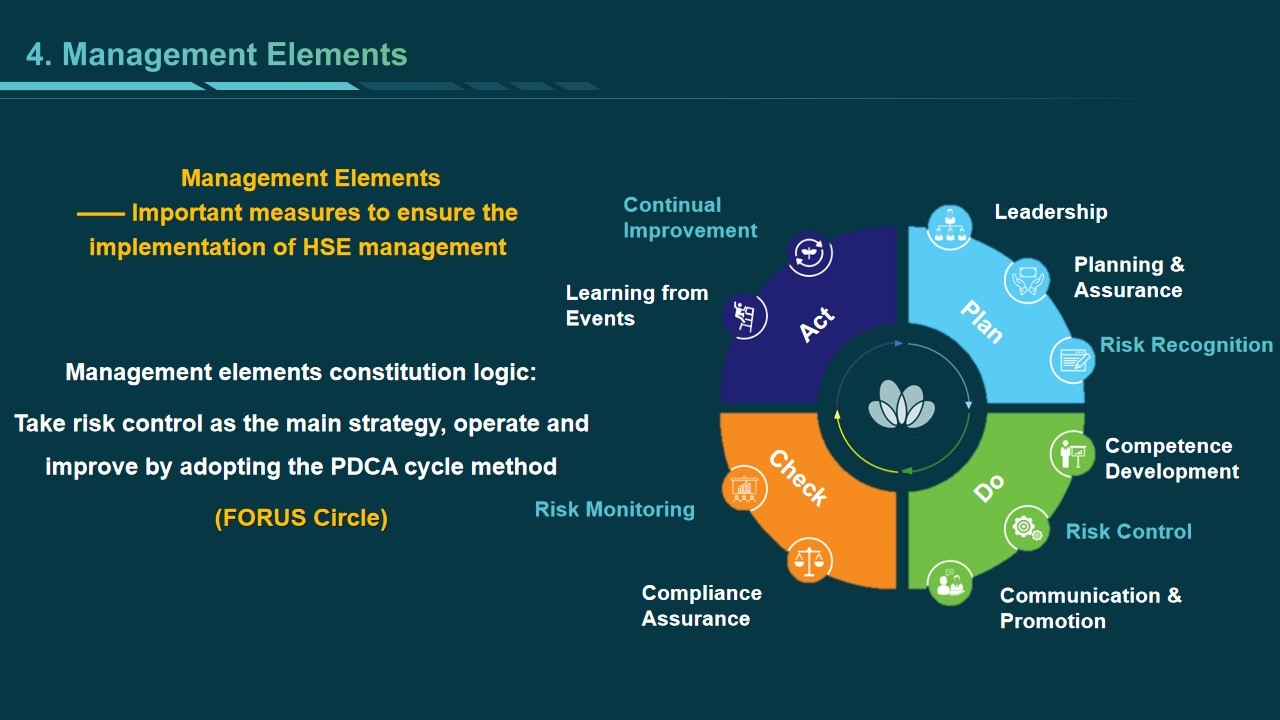
Element 1:LEADERSHIP
he role of leadership is irreplaceable. Excellent leadership is the core driving power of effective HSE management. The management should make clear commitments, actively exercise the leadership with safety as priority, play an exemplary role, create the culture that is necessary to implement FORUS system and lead employees to achieve the goals through actions.
Element 2:PLANNING & ASSURANCE
Set right directions via planning. Resources are the necessary assurance for achieving the goals. The Company should incorporate realizing the HSE vision and goals content into the development strategy and action plan, and provide the necessary resources for the establishment, implementation and improvement of the FORUS system.
Element 3:RISK RECOGNITION
Risk management starts from risk recognition. Understanding HSE risks and their consequences is critical to exercising the required controls on protecting people and the environment. The Company should regularly assess all of the business activities to identify risks and determine reasonable and effective control measures.
Element 4:COMPETENCE DEVELOPMENT
HSE is the entry requirement for employees. All employees should be competent to fulfill their regular duties. The Company should establish a favorable human resources system to effectively manage employees. The Company should also implement an effective training system to help employees understand the risks in the workplace and the activities they participate. As a result, the Company could maintain its ability to follow management procedures for normal operations and abnormal situations.
Element 5:RISK CONTROL
Risk control is the core of HSE management. The Company shall take reasonable and feasible controls according to the priority of risk control to keep the risks of all business activities and processes at an acceptable level. The Company should essentially achieve health, safety, and environmental protection in the design and construction stages and maintain the original intention in the production and operation stage through effective management. If there is an abnormal or emergency situation, the Company should take emergency measures to reduce the impact and keep the risk under control.
Element 6:COMMUNICATION & PROMOTION
Good communication is vital for ensuring all employees to understand and implement the FORUS system. The Company should build diversified communication channels, ensure mutual communication of important information, identify and widely promote the performance and best practices of outstanding team and individuals, reinforce correct behaviors while maintain mutual interaction with stakeholders to gain recognition.
Element 7:COMPLIANCE ASSURANCE
Compliance is the bottom line of Sinochem HK’s HSE system. The Company must establish a process for identifying applicable laws, regulations and standards, and evaluate their impact on the business to make sure that all business activities can meet or exceed the requirements of laws, regulations and HSE management, making active compliance as basic principle and conscious behavior of the Company.
Element 8:RISK MONITORING
Risk monitoring is essential to identify opportunities for improvement. To understand whether risks are under control, the Company must establish a risk monitoring mechanism, use HSE performance data to monitor and measure HSE processes and trends, identify deficiencies in control, and carry out necessary improvement measures on the basis of recognizing and controlling risk.
Element 9:LEARNING FROM EVENTS
Effective learning from event can convert undesired events into improvement opportunities. The Company should build a No Blame Culture, encourage employees to report incidents, conduct incident investigations, analyze root causes to take tailored corrective and preventive measures, and conduct statistical analysis and management of incidents regularly to strengthen employees' HSE practices.
Element 10:CONTINUAL IMPROVEMENT
Continual improvement is essential to achieve excellence. The Company should comprehensively evaluate HSE performance through review and analysis, management review and management benchmarking, identify good practices and management gaps, provide feedback to planning, continuously enhance the level of management.
